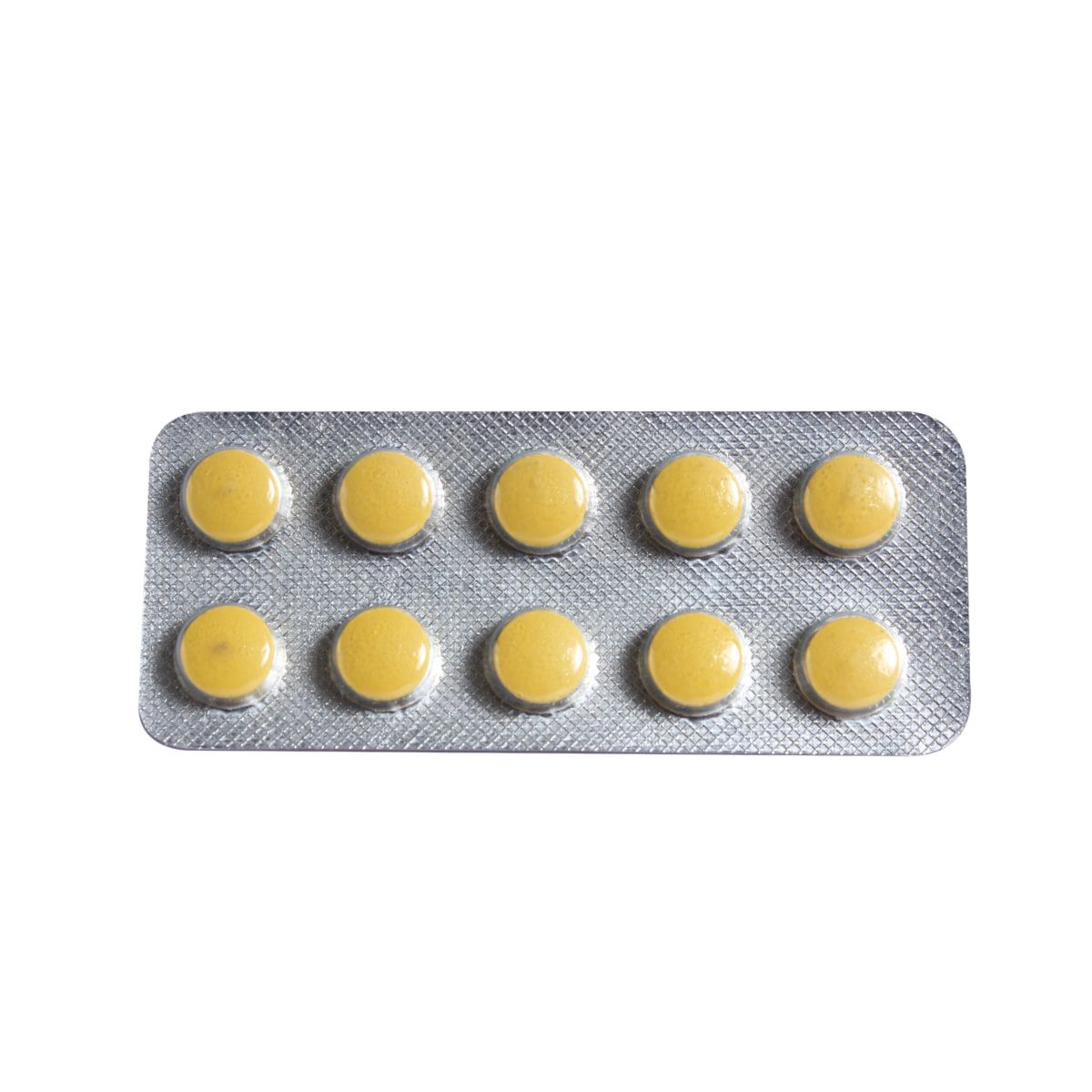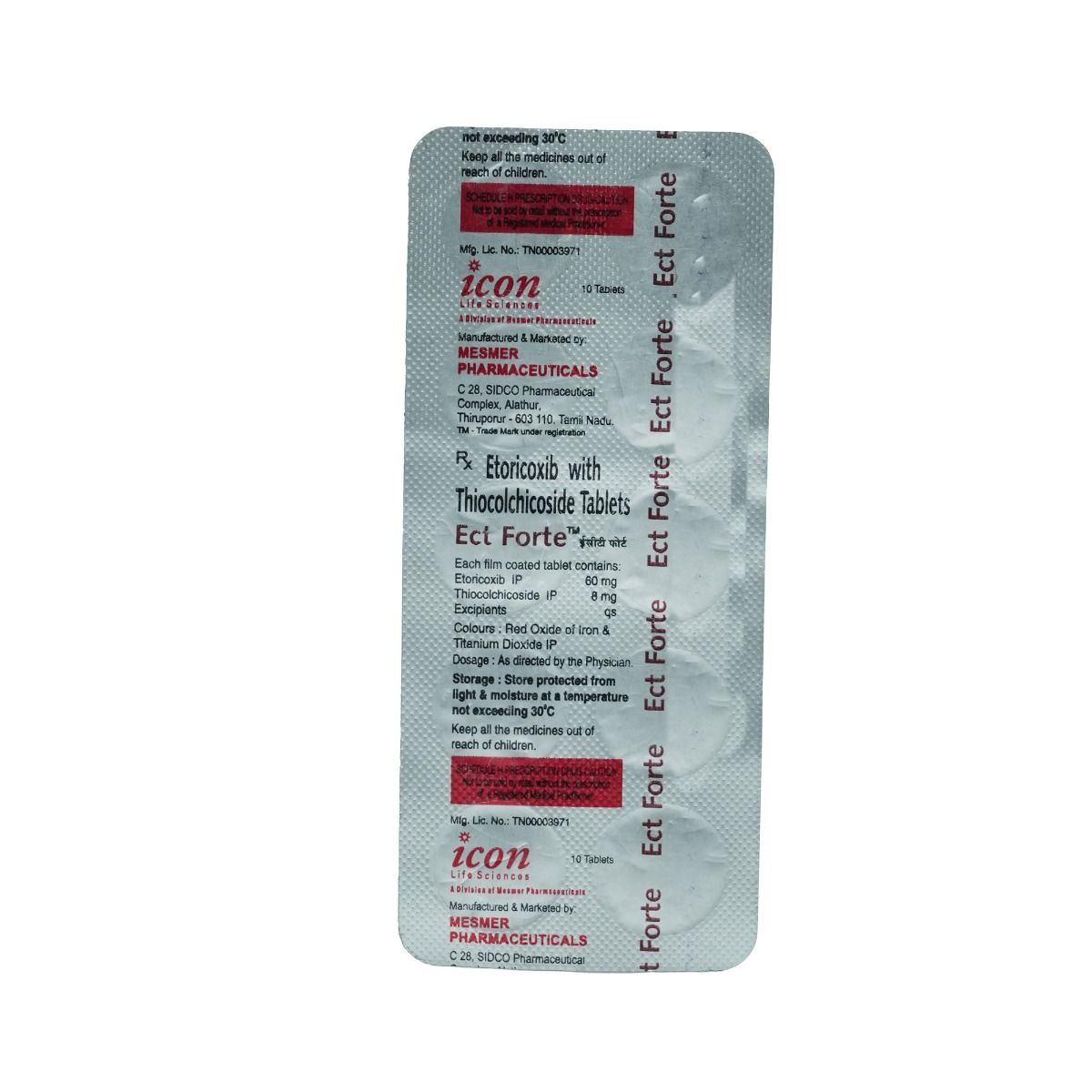Qvetoxib 60mg/8mg Tablet
₹193.5*
MRP ₹215
10% off
₹183*
MRP ₹215
15% CB
₹32 cashback(15%)
Free Delivery
With Circle membership
(Inclusive of all Taxes)
This offer price is valid on orders above ₹800. Apply coupon PHARMA10/PHARMA18 (excluding restricted items)
Provide Delivery Location

Whats That

Secure Payment

India's Most Trusted Pharmacy

Genuine Products
Composition
Consume Type
Return Policy
About Qvetoxib 60mg/8mg Tablet
Qvetoxib 60mg/8mg Tablet belongs to a group of medicines called Non-Steroidal Anti-Inflammatory Drugs (NSAIDs) used to relieve pain associated with osteoarthritis, rheumatoid arthritis, gouty arthritis and ankylosing spondylitis, acute pain, chronic low back pain and muscle spasms. Pain is a symptom triggered by the nervous system, causing uncomfortable sensations in the body. Muscle spasm is the sudden involuntary contractions of the muscle, which can be painful and uncomfortable.
Qvetoxib 60mg/8mg Tablet is a combination of two drugs: Etoricoxib (NSAID) and Thiocolchicoside (Muscle relaxant). Etoricoxib blocks the effect of chemical messengers, which cause pain and inflammation. Thiocolchicoside works on the centres of the spinal cord and brain. This helps relieve muscle stiffness and improves muscle movements, thereby helping relieve pain due to muscle spasms.
You are advised to take Qvetoxib 60mg/8mg Tablet for as long as your doctor has prescribed it for you, depending on your medical condition. In some cases, you may experience certain common side-effects such as flatulence, nausea, diarrhoea, indigestion, and swelling of hands and feet. Most of these side effects do not require medical attention and will resolve gradually over time. However, you are advised to talk to your doctor if you experience these side effects persistently.
Consult your doctor if you are pregnant or breastfeeding. Qvetoxib 60mg/8mg Tablet may cause sleepiness and dizziness, so drive only if you are alert. Qvetoxib 60mg/8mg Tablet should not be given to children as safety and efficacy have not been established. Avoid consuming alcohol along with Qvetoxib 60mg/8mg Tablet as it could lead to increased dizziness; it might also increase the risk of stomach bleeding. Keep your doctor informed about your health condition and medicines to rule out any side effects.
Uses of Qvetoxib 60mg/8mg Tablet
Medicinal Benefits
Qvetoxib 60mg/8mg Tablet is a combination of two drugs: Etoricoxib (Non-Steroidal Anti-Inflammatory Drugs) and Thiocolchicoside (Muscle relaxant). Qvetoxib 60mg/8mg Tablet is used for the treatment of osteoarthritis, rheumatoid arthritis, gout, ankylosing spondylitis, acute pain, chronic low back pain and muscle spasms. Etoricoxib blocks the effect of a chemical messenger known as cyclo-oxygenase (COX) enzyme that makes another chemical, prostaglandins, which are produced at injury sites and cause pain and swelling. By blocking the effect of COX enzymes, lesser prostaglandins are produced. This helps in reducing mild to moderate pain and inflammation at the injured or damaged site. Thiocolchicoside works on the centres of the spinal cord and brain. This helps relieve muscle stiffness and improves muscle movements, thereby helping relieve pain due to muscle spasms.
Directions for Use
Storage
Side Effects of Qvetoxib 60mg/8mg Tablet
- Flatulence
- Indigestion
- Stomach pain
- Nausea
- Diarrhoea
- Swelling of hands and feet
- Irregular heartbeat
Drug Warnings
Do not take Qvetoxib 60mg/8mg Tablet if you are allergic to any of its contents, if you have stomach ulcers, have suffered bleeding problems, clotting problems, inflammatory bowel disease, severe heart, liver or kidney problems, galactose intolerance, Lapp lactase deficiency or glucose-galactose malabsorption. If you have had any recent heart surgery, do not take Qvetoxib 60mg/8mg Tablet as it may increase the risk of fatal heart attack or stroke. Inform your doctor before taking Qvetoxib 60mg/8mg Tablet if you have/had stomach bleeding or ulcers, heart failure, high blood pressure, diabetes, high cholesterol, kidney or liver impairment. Consult your doctor if you are pregnant or breastfeeding. Qvetoxib 60mg/8mg Tablet may cause sleepiness and dizziness, so drive only if you are alert. Qvetoxib 60mg/8mg Tablet should not be given to children as safety have not been established. Avoid consuming alcohol along with Qvetoxib 60mg/8mg Tablet as it could lead to increased drowsiness and can increase the risk of stomach bleeding. Stop taking Qvetoxib 60mg/8mg Tablet and consult your doctor immediately if you have stomach pain or any signs of bleeding in the intestine or stomach, such as blood in stools. Do not take any other NSAIDs for pain relief along with Qvetoxib 60mg/8mg Tablet unless prescribed.
Drug Interactions
Drug-Drug Interactions: Qvetoxib 60mg/8mg Tablet may interact with pain killers (aspirin), bronchodilators (salbutamol), anti-depressants (lithium), cardiac glycoside (digoxin), anti-hypertensives (enalapril, ramipril, losartan, valsartan, minoxidil), antibiotics (rifampicin), blood thinners (warfarin), immunosuppressants (cyclosporine, tacrolimus), and anti-rheumatoid (methotrexate).
Drug-Food Interactions: Avoid alcohol consumption while taking Qvetoxib 60mg/8mg Tablet as it might cause increased dizziness and risk of stomach bleeding.
Drug-Disease Interactions: Inform your doctor if you have stomach ulcers, blood disorders, stomach disorders, diabetes, high blood pressure, high cholesterol, galactose intolerance, Lapp lactase deficiency or glucose-galactose malabsorption, heart, kidney or liver problems.
Drug-Drug Interactions Checker List
- ASPIRIN
- SALBUTAMOL
- LITHIUM
- DIGOXIN
- ENALAPRIL
- RAMIPRIL
- LOSARTAN
- VALSARTAN
- MINOXIDIL
- RIFAMPICIN
- WARFARIN
- CYCLOSPORINE
- TACROLIMUS
- METHOTREXATE
Habit Forming
Diet & Lifestyle Advise
Physical activity helps in strengthening muscles and relieves joint stiffness. Gentle activities like 20-30minutes of walking or swimming would be helpful.
Performing yoga may also help in improving joint flexibility and pain management.
Maintain a healthy weight by performing regular low-strain exercises and eating healthy food.
Get adequate sleep as resting the muscles can help in reducing inflammation and swelling.
Follow heat or cold therapy, apply a cold or hot compress on the joints for 15-20minutes regularly.
De-stress yourself by meditating, reading books, taking a warm bubble bath or listen to soothing music.
Acupuncture, massage and physical therapy may also be helpful.
Eat food rich in antioxidants such as berries, spinach, kidney beans, dark chocolate, etc.
Foods containing flavonoids help in reducing inflammation. These include soy, berries, broccoli, grapes and green tea.
Avoid smoking and alcohol consumption.
Special Advise
Qvetoxib 60mg/8mg Tablet is not recommended for use in patients with a history of gastrointestinal ulcers or bleeding since it may worsen the patient's condition.
Qvetoxib 60mg/8mg Tablet should be used with caution in patients suffering from high blood pressure and receiving high blood pressure medicines due to the increased risk of altered blood pressure. Close monitoring of blood pressure levels is recommended for such patients.
Drink plenty of water and fluids. Give proper rest to your body and avoid straining of muscles or tendons.
Disease/Condition Glossary
Pain: Pain is a symptom triggered by the nervous system, causing uncomfortable sensations in the body. Pain may be dull or sharp; it might be constant or may come and go. The common causes of pain include headache, muscle strain, cramps, cuts, bone fractures and arthritis.
Osteoarthritis: It is a joint disease in which the two ends of the joints come together due to the breakdown of a protective covering of cartilage. Due to the absence of this protective covering, the joints rub against each other, leading to pain and stiffness. Symptoms include pain, stiffness, inflammation and tenderness.
Rheumatoid arthritis: It is an auto-immune disease (the body's immune system attacks its tissue), leading to joint pain and damage. Symptoms of rheumatoid arthritis include pain, swelling, stiffness, deformities and loss of joint function.
Ankylosing spondylitis: It causes pain and stiffness in the spine. The pain generally starts in the lower back and can spread to the neck, damaged joints or other body parts. Ankylosing spondylitis includes decreased flexibility which usually leads to hunched-forward posture and pain in joints.
Gout: It is caused due to deposits of uric acid crystals in the joints, which leads to pain and inflammation in the joints. Symptoms include pain, swelling and redness in the joints, mostly the big toe.
Alcohol
Unsafe
Avoid consumption of alcohol while taking Qvetoxib 60mg/8mg Tablet as it may increase drowsiness. It can also increase the risk of stomach bleeding.
Pregnancy
Caution
Please consult your doctor if you have any concerns regarding this, your doctor will prescribe only if the benefits outweigh the risks.
Breast Feeding
Caution
Please consult your doctor before taking Qvetoxib 60mg/8mg Tablet; your doctor will decide whether Qvetoxib 60mg/8mg Tablet can be taken by breastfeeding mothers or not.
Driving
Caution
Qvetoxib 60mg/8mg Tablet may cause dizziness and sleepiness. Do not drive or operate machinery unless you are alert.
Liver
Caution
Dose adjustment may be needed in patients with liver impairment. Please consult your doctor if you have a liver impairment or any concerns regarding this.
Kidney
Caution
Dose adjustment may be needed in patients with kidney impairment. Please consult your doctor if you have kidney impairment or any concerns regarding this.
Children
Unsafe
Qvetoxib 60mg/8mg Tablet should not be given to children as the safety and effectiveness were not established.
Manufacturer/Marketer address
Author Details
We provide you with authentic, trustworthy and relevant information
FAQs
Disclaimer
Product Substitutes




_0.jpg?tr=q-80)







